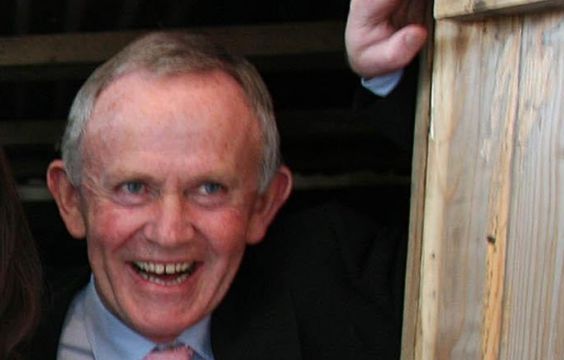A High Court judge will rule next May on the bid by former INM chairman Leslie Buckley to have two inspectors withdrawn from investigating matters at the media group.
Mr Justice Garrett Simons, having heard final arguments in the application on Friday, said an enormous volume of material had been put before the court. It was not possible for him to read and consider all of that and deliver judgment any earlier than May 21st next, he said.
The hearing began in October and was adjourned on October 23rd after several days to a date to be agreed between the sides for the conclusion of arguments by Seán Guerin SC, for Mr Buckley. Mr Guerin concluded his arguments over some 90 minutes on Friday.
Alleged bias
In his application, Mr Buckley wants to have the inspectors withdrawn, or a direction requiring them to recuse themselves, on grounds of alleged objective bias.
The inspectors, Seán Gillane SC and Richard Fleck CBE, who were appointed by the High Court in September 2018, strongly deny objective bias and oppose the application.
Their counsel Cian Ferriter SC has argued there was nothing advanced to support Mr Buckley's claim of objective bias on the part of the inspectors in favour of former INM CEO Robert Pitt and against Mr Buckley.
Mr Buckley’s claims arise from the inspectors’ draft statement - presenting information and evidence gathered by them to date concerning five issues under investigation - in circumstances where the inspectors “have not made up their minds on anything”, counsel said.
Protected disclosures
The Director of Corporate Enforcement (ODCE) sought the inspectors appointment following his office’s year-long investigation into matters at INM arising from protected disclosures made in 2016 and 2017 by Mr Pitt and former INM Chief Financial Officer Ryan Preston.
Five issues being investigated include the alleged off-site interrogation in 2014 of the data of 19 individuals, including journalists and barristers, and Mr Buckley’s communication with Denis O’Brien as a major shareholder in INM.
Mr Buckley’s application centres on his complaints about the inspectors treatment of information and evidence in five lengthy draft statements, collectively referred to as the ‘draft statement’, gathered to date concerning the issues and circulated to Mr Buckley and others for submissions with a view to amendment.
Serious allegations
In his closing arguments on Friday, Mr Guerin said, while not casting any aspersions on the inspectors personally, a reasonable objective observer would have grave concerns about an “unevenness” in the documents circulated by them.
Those documents are “in substance” an early draft of the inspectors’ report and showed a pattern of being favourable to the evidence of Mr Pitt and unfavourable to the evidence of Mr Buckley, he said. It was also “troubling” the inspectors had not explained “grave errors” in the documents.
While respecting that the inspectors are engaged in an investigation which may not result in findings against a person, it would be “a failure to engage with reality” not to acknowledge the matters under investigation involve serious allegations against Mr Buckley, he said.
In a personal and commercial context, the potential consequences for Mr Buckley are “extremely grave” and ordinary procedural rights are not available to him, counsel said. The inspection process is not an ordinary court process, there is no right of appeal and parties in other proceedings who have made serious allegations against Mr Buckley may seek to rely on the inspectors’ report.
All of this underlined the significance of the inspectors getting their report “right”, he said.







